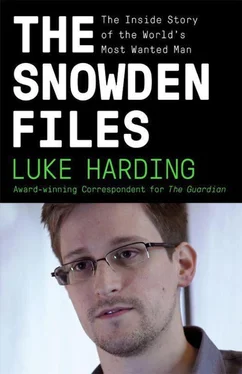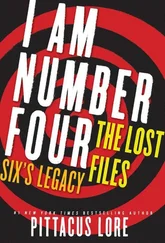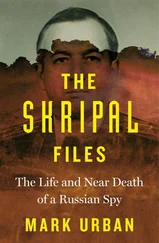Now he agonised: ‘My family does not know what is happening. My primary fear is that they will come after my family, my friends, my partner. Anyone I have a relationship with.’ He admitted: ‘That keeps me up at night.’
The NSA’s unwelcome house call was hardly surprising. And as he was now on their radar, the chances of Snowden’s Hong Kong hideout soon being busted seemed much higher. He had, after all, exfiltrated many thousands of the agency’s most secret documents. MacAskill felt sympathy towards Snowden. Here was a young man in trouble. His future seemed bleak. Snowden was almost the same age as MacAskill’s children. ‘I would not like one of my kids to be in that predicament,’ he says.
But the CIA hadn’t found him yet. This was one of the more baffling aspects of the Snowden affair: why did the US authorities not close in on him earlier? Once they had spotted his absence, they might have pulled flight records showing he had fled to Hong Kong. There he was comparatively easy to trace. Snowden had checked into the £200-a-night Mira Hotel under his own name. He was even paying the bill with his personal credit card, now practically maxed out, and another source of worry for him: Snowden feared his pursuers might block it.
One explanation is that the US was reluctant to act in communist China. Another is that the US authorities were less omnipotent than they appeared. This view – bureaucratic ineptness rather than a Sino–US impasse – seems the more likely explanation in the light of the White House’s subsequent bungled attempts to extradite Snowden from Hong Kong.
The experience of flying half way across the world, meeting Snowden, and then working on a set of extraordinary stories created a close bond between three journalists who were quite ill-assorted: a disputatious gay American, an intense Oscar-nominated film-maker and a Brit professional reporter and mountaineer who said ‘Aye’ rather than ‘Yes’, just like Scottie from Star Trek . It was a camaraderie born out of something thrilling and uncertain. All three felt they were involved in a joint endeavour of high public importance, with a large degree of risk. MacAskill had climbed the Matterhorn, Mont Blanc and the Jungfrau. His calmness now stood him in good stead.
Poitras’s earlier antipathy to MacAskill vanished. She grew fond of him. ‘Ewen meshed into the team so seamlessly and perfectly and instantly,’ Greenwald says. Rusbridger dubbed the triple working partnership ‘a lovefest’.
That evening, Greenwald rapidly drafted a story about Verizon. Snowden’s classified documents showed that the NSA was secretly collecting all the records from this major US telecoms company. The trio intended this story to be only the first in a series of seismic disclosures. But they feared that time was not on their side. MacAskill and Greenwald discussed the text until late. They sat in Greenwald’s room in the W Hotel, overlooking the harbour and the hills of the Chinese mainland. The view took in skyscrapers on Hong Kong Island and the bridge towards the airport – a crowded, twinkling cityscape.
Greenwald would work on his laptop, then pass it to MacAskill. MacAskill would type on his computer and hand Greenwald his articles on a memory stick; the sticks flowed back and forth. Nothing went on email. The journalists lost track of the hours. MacAskill went to bed for a while. When he got up, Greenwald was still working. Snowden told the New York Times ’s Peter Maass, ‘I was particularly impressed by Glenn’s ability to operate without sleep for days at a time.’ (In fact, Greenwald would crash out in the afternoons.)
They sent their final version of the story over to Janine Gibson in New York. Its appearance would certainly start an unprecedented and unpredictable uproar.
But the question now was whether the Guardian was actually prepared to publish it.
Guardian
US office, SoHo, New York
June 2013
HIGGINS: ‘You can walk, but will they publish?’
TURNER: ‘They’ll publish.’
Three Days of the Condor , 1975
For over a decade, 33-year-old Spencer Ackerman had been covering the US national security beat. He had been building contacts, schmoozing senators and tracking the post 9/11 policies of the Bush and Obama administrations. This could be frustrating. True, in 2005 the New York Times had revealed the existence of an aspect of President Bush’s warrantless surveillance program, codenamed STELLAR WIND. But this leak was highly unusual, a ray of light chinking out from an otherwise impenetrable secret world. (The Times had sat on the story for a year. It had eventually published, but only after its hand was forced when Times reporter James Risen planned to write about it in a book.)
A rambunctious character, prone to performing push-ups during moments of high stress, Ackerman came from New York. He was nearby in New Jersey at college – aged 21 – when the planes crashed into the Twin Towers. ‘It was the big story,’ he says, explaining his interest in national security. Working first for The New Republic , and then for WIRED magazine, and its national security blog ‘Danger Room’, he had devoted much of his energies to probing the NSA’s surveillance programs. There were clues. But few facts. And the NSA was silent about its work, as remote as an order of mute Carthusian monks.
In 2011, Ackerman got a call from the office of Ron Wyden, the Oregon Democrat and a leading critic of government surveillance. Speaking obliquely during an interview in the senator’s office – he couldn’t disclose classified information, after all – Wyden said he was deeply concerned about the Patriot Act, which Congress was about to reauthorise. More specifically, the senator said the executive branch had come up with a legal interpretation drastically at odds with what the act actually said . Conveniently, the government had classified its own interpretation. So nobody could challenge it. But, Wyden hinted, the White House was using casuistic means to conceal the scale of its data-gathering programs.
What was going on? In a post for WIRED , Ackerman speculated that the government was hoovering up massive amounts of information on private citizens. But the NSA flatly rejected suggestions it spied on Americans. In 2012, General Alexander made an unlikely appearance at a Las Vegas hacker convention. It was the first time the US’s top spy boss had visited the DefCon event. Swapping his crisply ironed general’s uniform for a crumpled T-shirt and down-with-the-kidz jeans, Alexander took incongruously to the stage. He assured his audience that the agency ‘absolutely’ didn’t keep ‘files’ or ‘dossiers’ on ‘millions or hundreds of millions’ of Americans.
Was this a barefaced lie? Or a semantic evasion in which ‘files’ meant something different from, say, bulk collection of telephone records? For Ackerman, and other national security journalists, these were tantalising pieces of a large puzzle. The post-9/11 Patriot Act gave the edges. But the overall design remained unclear. Officials might well be using a mixture of secret courts, obfuscation and classification to fend off legitimate requests for information. But there was no proof. And since hardly anyone ever leaked from the NSA, there seemed little prospect the true extent of government surveillance would be revealed any time soon.
In late May, Ackerman, a prolific tweeter, quit his job at WIRED . An opportunity came up with a new operation, to become US national security editor at the Guardian . The job would be based at the paper’s DC office in Farragut Square, a mere three blocks away from the White House. US editor Janine Gibson asked Ackerman to come first to New York. She told him she would like him to spend a week undergoing ‘orientation’. It wasn’t entirely clear what ‘orientation’ meant. Nonetheless, keen to impress and brimming with ideas, Ackerman travelled to NYC to report for duty.
Читать дальше












